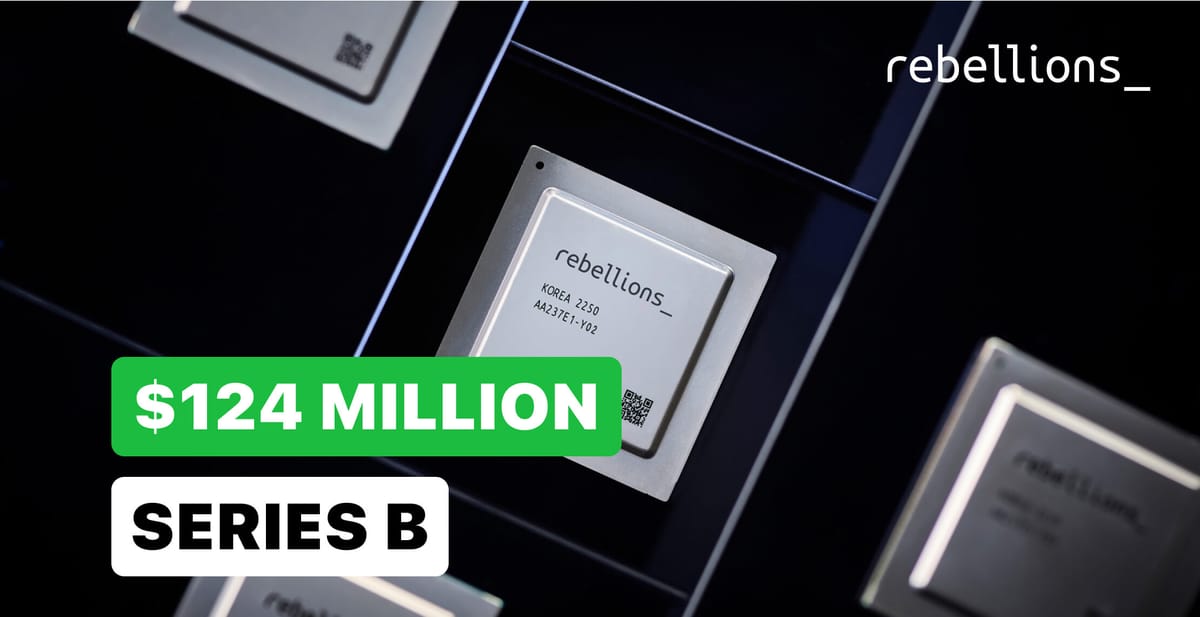
Seoul-based AI chip designer Rebellions has raised $124 million in a recent Series B funding round, fueling its ambitions to challenge industry leader NVIDIA.
The oversubscribed round, led by Korean telecom giant KT Corporation, values the three-year-old startup at approximately $658 million post-money. This capital injection brings Rebellions' total raised to date to $210 million since its founding in 2020 by Sunghyun Park, a former quant developer at Morgan Stanley, along with four co-founders.
Previous backers Temasek’s Pavilion Capital and the Korea Development Bank participated, alongside prominent new investors like European VC firm Korelya Capital and Japanese financial group DG Daiwa Ventures.
The fresh financing comes as competition intensifies in the red-hot AI chip sector, with surging demand for hardware to power next-generation AI capabilities like large language models. In a market that is absolutely being dominated by NVIDIA, new players like Rebellions are now vying for a slice of this rapidly expanding market by providing innovative solutions to address the high costs and processing demands of AI applications.
Rebellions aims to utilize the new funds to develop its third-generation AI processor, code-named “Rebel.” Built in partnership with Korean tech titan Samsung Electronics, Rebel will target the burgeoning generative AI segment running resource-intensive large language models and hyperscaler data centers when it launches in 2025.
“Rebel will use Samsung’s cutting-edge 4-nanometer fabrication process,” said Rebellions CFO Sungkyue Shin. “[It] will also be deployed in Samsung’s advanced HBM3E memory technology to handle high-bandwidth workloads like large language models.”
Shin emphasizes Rebel’s versatility in supporting diverse AI models as a key differentiator from more customized competing chips. The collaboration aligns with Samsung’s own ambitions in generative AI, as it concurrently develops platforms like Samsung Gauss.
Rebellions isn't just focused on the future; it's also capitalizing on its current offerings. The Atom chip, designed for data centers and supporting language models of up to 7 billion parameters, is expected to start generating revenue in the latter half of the year. Meanwhile, the Ion chip, aimed at edge computing and financial services applications, is undergoing qualification testing in the U.S.
The funding infusion follows the May 2023 launch of Rebellions’ previous generation Atom chip in KT’s cloud infrastructure. Atom targets data center applications up to 7 billion parameters. Rebellions’ first chip Ion, for edge devices, is still undergoing qualifications but shows promise for financial services use cases.
As the AI industry continues to evolve, the competition among chip manufacturers is intensifying, with each seeking to offer more efficient, powerful solutions for AI applications. With cutting-edge chips in the pipeline and widening customer deployments, Rebellions is gearing up to be a major player in AI silicon.

